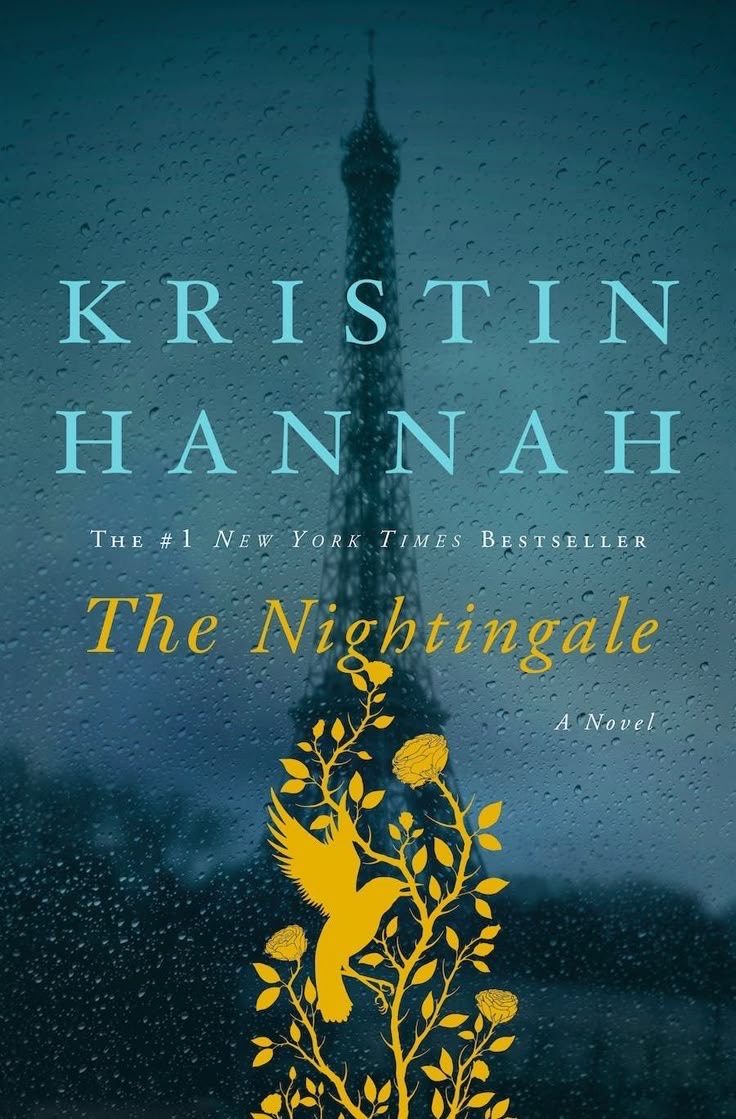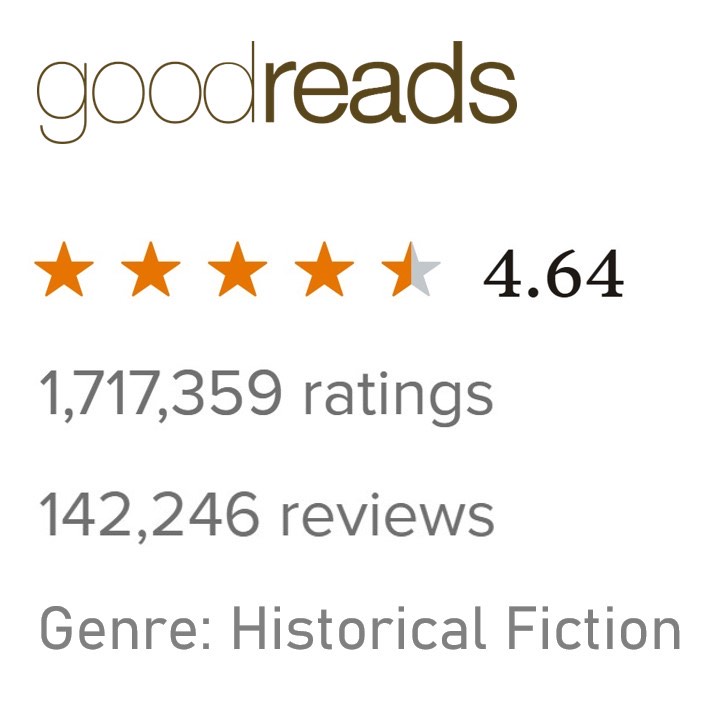'The Nightingale' by Kristin Hannah: A Story of Courage, Sacrifice, and Survival
“If there is one lesson to be learned from life, it is this: in love, people discover who they want to be; in war, they discover who they truly are.”
Few novels succeed in capturing the depth and complexity of interpersonal relationships, particularly among female characters, as powerfully as 'The Nightingale' by Kristin Hannah. Set against the backdrop of Nazi-occupied France during World War II, the novel weaves a compelling narrative of resilience, sacrifice, and the unyielding strength of women in wartime.

Originally published in 2015, 'The Nightingale' has been widely recognized for its historical depth and emotional impact. Now available in paperback from St. Martin’s Press renowned for its well-researched historical fiction-the novel continues to captivate readers with its themes of love, survival, and moral dilemmas.
At the heart of the novel are two sisters, Vianne and Isabelle Mauriac, whose journeys unfold in the quiet village of Carriveau. Vianne, a schoolteacher, is forced to say goodbye to her husband, Antoine, as he departs for the front. Though she initially believes the Nazis will not invade France, reality proves otherwise when soldiers arrive in droves, taking over homes and imposing harsh restrictions. When a German captain requisitions her home, Vianne must navigate an increasingly perilous existence, making unimaginable choices to protect her daughter and those around her.
Isabelle, the younger of the two, is a rebellious eighteen-year-old searching for purpose. As the war intensifies, she joins the French Resistance, risking her life to help downed Allied airmen escape Nazi-occupied France. While Vianne chooses a path of quiet resistance, helping to hide Jewish children; Isabelle takes a more direct approach, illustrating the contrasting yet equally courageous ways women contributed to the war effort.
The novel excels in portraying the difficult choices that individuals, particularly women, were forced to make under occupation. The presence of Nazi soldiers in homes, the constant threat of starvation, and the moral conflicts of survival are depicted with stark realism. Scenes illustrating the brutalities of war and the horrors of concentration camps are particularly poignant, highlighting the novel’s emotional depth and historical authenticity.

Beyond the immediate struggles of war, 'The Nightingale' delves into the complexities of familial love. The strained relationship between Vianne and Isabelle, their contrasting responses to the occupation, and their shared resilience underscore the novel’s exploration of duty, sacrifice, and the unspoken bonds between siblings. The depiction of maternal love both Vianne’s devotion to her own children and her decision to shelter Jewish children raises profound questions about what it means to be a parent in times of crisis.
Kristin Hannah’s meticulous research and evocative storytelling bring to life the often-overlooked experiences of women during World War II. Inspired by real-life accounts, the novel serves as both a tribute and a reminder of the unsung heroines who played vital roles in resistance movements. The writing is immersive, with rich descriptions that transport readers to war-torn France, making every scene feel immediate and visceral.
The novel also explores the impact of war on identity and self-perception. Vianne, who begins the war as a rule-abiding woman determined to maintain normalcy, gradually transforms into someone willing to risk everything for others. Her journey is marked by quiet but powerful acts of bravery, revealing the strength that can emerge in the face of relentless oppression. Isabelle, in contrast, embodies defiance from the beginning, yet her experiences force her to confront the weight of responsibility and the consequences of resistance. The narrative deftly examines how both women evolve, shaped by the extraordinary circumstances they endure.
The setting of Nazi occupied France is brought to life with vivid detail, capturing the fear, uncertainty, and resilience of those who lived through it. The depiction of rationing, the black market, and the insidious control exerted by the Nazi regime adds a layer of historical accuracy that deepens the reader’s understanding of the time period. The novel does not shy away from depicting the devastating realities of war, ensuring that the atrocities committed are neither overlooked nor romanticized.
In addition to its historical significance, 'The Nightingale' also serves as an exploration of the many forms of love. Romantic love, familial love, and love for one’s country are all interwoven into the fabric of the story. The choices characters make out of love often come at great personal cost, reinforcing the novel’s themes of sacrifice and moral complexity. The relationship between Vianne and Isabelle is particularly poignant, reflecting the tensions and deep bonds that exist between siblings who see the world differently but ultimately share an unbreakable connection.
One of the novel’s most striking aspects is its ability to evoke strong emotional responses. Moments of joy, heartbreak, terror, and hope are interspersed throughout the narrative, creating a reading experience that is as emotionally profound as it is intellectually engaging. The impact of war on civilians, particularly women, is portrayed with an unflinching honesty that ensures the reader remains invested in the fates of the characters until the very last page.
Another powerful aspect of 'The Nightingale' is the way it highlights the moral ambiguities faced by those living under occupation. Many characters must make choices that challenge their ethics, from collaboration with the enemy to betrayal and survival-driven deception. These dilemmas add depth to the narrative, making it clear that heroism and cowardice are often separated by only the thinnest of margins. The strength of the novel lies in its refusal to present a simplistic view of war; instead, it acknowledges the shades of grey that exist within human nature.
The novel’s conclusion is particularly noteworthy, delivering a deeply moving and satisfying resolution that underscores the themes of resilience and remembrance. It serves as a reminder of the sacrifices made by countless individuals during wartime and the importance of preserving their stories. The final pages leave a lasting impression, ensuring that 'The Nightingale' remains in the minds of readers long after the book is closed.
In examining the broader themes of the novel, it is evident that 'The Nightingale' is not merely a story of two sisters but a reflection of the countless women whose contributions to the war effort have historically been overlooked. The novel provides a voice to those who fought in different yet equally significant ways, whether through active resistance or acts of quiet defiance. This emphasis on the role of women in war makes the story not only compelling but also necessary in the broader historical discourse.
Kristin Hannah has crafted a novel that is both a tribute to the resilience of women in wartime and a compelling historical narrative. 'The Nightingale' is not just a story of survival but a testament to the strength of the human spirit and the sacrifices made in the name of love, freedom, and duty. It stands as an essential read for those interested in historical fiction, shedding light on an often overlooked perspective of World War II.
With its masterful storytelling, richly developed characters, and poignant themes, 'The Nightingale' has secured its place as a modern classic in historical fiction. Its ability to inspire deep reflection and discussion makes it a novel that will continue to be celebrated for years to come. For those seeking a book that not only entertains but also educates and provokes thought, this novel is a must-read. It paints a vivid picture of war’s impact on ordinary people, revealing the extraordinary courage that arises in the face of overwhelming adversity.
This unforgettable novel resonates as a powerful reminder of the endurance of the human spirit. It provides a deeply moving account of love, loss, and resilience during one of history’s darkest periods. Through the lens of Vianne and Isabelle, readers gain insight into the sacrifices made by those who refused to be silenced, ensuring that their stories live on through the pages of history.





